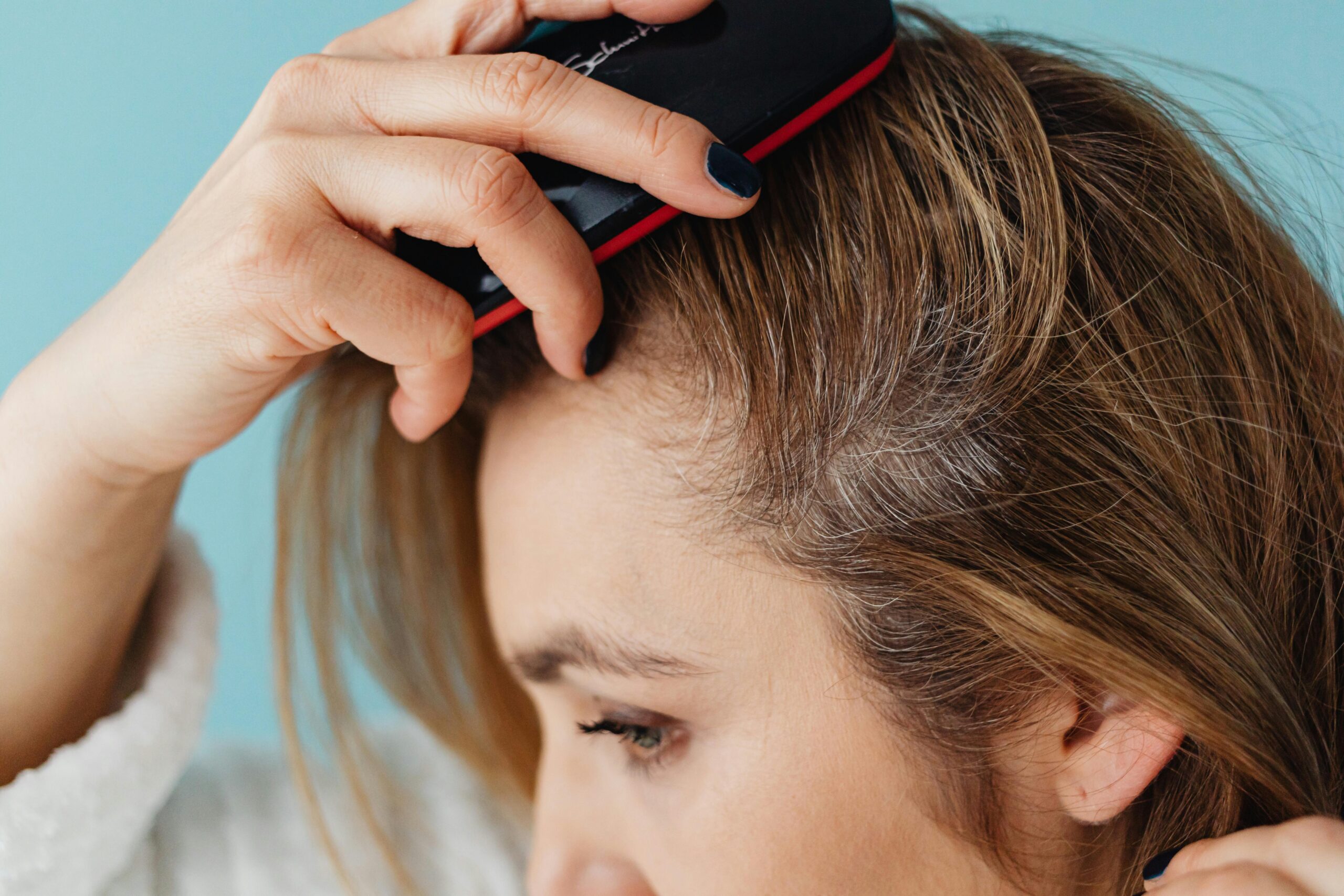Scalp psoriasis is a chronic skin condition that causes redness, itching, and flaky patches on the scalp. While it can be challenging to manage, combining soothing treatments and nourishing care can significantly alleviate discomfort. This article explores proven strategies and practical tips to help you manage scalp psoriasis effectively.
Understanding Scalp Psoriasis
Scalp psoriasis is an autoimmune condition where the skin cells on the scalp multiply too quickly. This leads to thick, scaly patches that can be itchy and inflamed. It often extends to the hairline, forehead, back of the neck, and ears.
Although there is no cure for scalp psoriasis, it is manageable with the right care. Understanding its triggers and tailoring your treatment approach can make a significant difference in controlling symptoms.
Effective Strategies for Managing Scalp Psoriasis
1. Use Medicated Shampoos
Medicated shampoos are specifically formulated to target the symptoms of scalp psoriasis. Ingredients like coal tar, salicylic acid, and ketoconazole help reduce flaking, soothe irritation, and slow down skin cell turnover.
When using medicated shampoos, leave the product on your scalp for the recommended time to allow the active ingredients to work effectively. Regular use can improve your scalp’s condition over time.
2. Keep Your Scalp Moisturized
A dry scalp can exacerbate psoriasis symptoms. Applying moisturizers, such as natural oils or medicated creams, helps keep your scalp hydrated and reduces itchiness and flaking.
Opt for gentle, fragrance-free products to avoid irritation. Ingredients like aloe vera, coconut oil, or shea butter can provide soothing relief.
3. Gently Remove Scales
Removing scales can improve the effectiveness of treatments and reduce irritation. Use a fine-toothed comb or a soft brush to gently lift flakes from the scalp. It’s important to be gentle to avoid causing further inflammation.
A warm oil treatment can soften the scales, making them easier to remove without damaging the skin.
4. Avoid Triggers
Common triggers for scalp psoriasis include stress, harsh hair products, cold weather, and infections. Keeping a journal to identify and avoid specific triggers can help prevent flare-ups.
Making lifestyle adjustments, such as managing stress through mindfulness or exercise, can also reduce the severity of symptoms.
5. Apply Topical Treatments
Topical treatments, such as corticosteroids, vitamin D analogs, or coal tar ointments, can target inflammation and reduce symptoms. These treatments are often prescribed by dermatologists and should be used as directed.
Consistent application is key to achieving noticeable results, so make it a regular part of your scalp care routine.
6. Seek Professional Advice
If over-the-counter treatments don’t provide relief, consult a dermatologist. They can prescribe stronger medications, such as oral treatments or biologics, to manage severe cases.
Professional guidance ensures that you receive the most effective and safe treatment for your specific condition.
Home Remedies for Soothing and Nourishing the Scalp
Aloe Vera
Aloe vera gel has natural anti-inflammatory and moisturizing properties. Apply it directly to the scalp to soothe redness and reduce itching.
Coconut Oil
Coconut oil is excellent for moisturizing the scalp and softening scales. Massage it gently onto your scalp and leave it on for a few hours before rinsing.
Apple Cider Vinegar
Diluted apple cider vinegar can help reduce itchiness and flaking. Rinse your scalp with a mixture of apple cider vinegar and water to calm irritation.
Oatmeal Rinse
An oatmeal rinse can provide relief from dryness and itching. Prepare a soothing oatmeal soak by steeping oatmeal in warm water and applying it to your scalp.
Tips for Managing Scalp Psoriasis Long-Term
- Stick to a consistent scalp care routine, incorporating medicated treatments and moisturizers.
- Avoid scratching your scalp, as this can worsen symptoms and lead to infection.
- Protect your scalp from harsh weather by wearing a hat or using a scarf during cold seasons.
- Choose gentle hair products free from sulfates and artificial fragrances to minimize irritation.
Conclusion
Managing scalp psoriasis requires patience and a tailored approach. By using medicated shampoos, keeping your scalp moisturized, and avoiding triggers, you can significantly reduce discomfort and maintain a healthier scalp. With consistent care and professional guidance, managing scalp psoriasis becomes a much more manageable task.
Frequently Asked Questions (FAQs)
1. Can scalp psoriasis cause hair loss?
Scalp psoriasis itself doesn’t cause permanent hair loss. However, excessive scratching or harsh treatments can damage hair follicles, leading to temporary hair loss.
2. How long does it take to see results from medicated shampoos?
Results vary depending on the severity of your condition and the product used. Most people notice improvement within a few weeks of consistent use.
3. Can diet impact scalp psoriasis?
Certain foods may trigger inflammation, potentially worsening symptoms. Eating an anti-inflammatory diet rich in fruits, vegetables, and omega-3 fatty acids may help reduce flare-ups.
4. Is scalp psoriasis contagious?
No, scalp psoriasis is not contagious. It is an autoimmune condition and cannot be passed from person to person.
5. Can I dye my hair if I have scalp psoriasis?
It’s possible to dye your hair, but choose gentle, ammonia-free products. Avoid dyeing during active flare-ups, as the chemicals can irritate your scalp.



